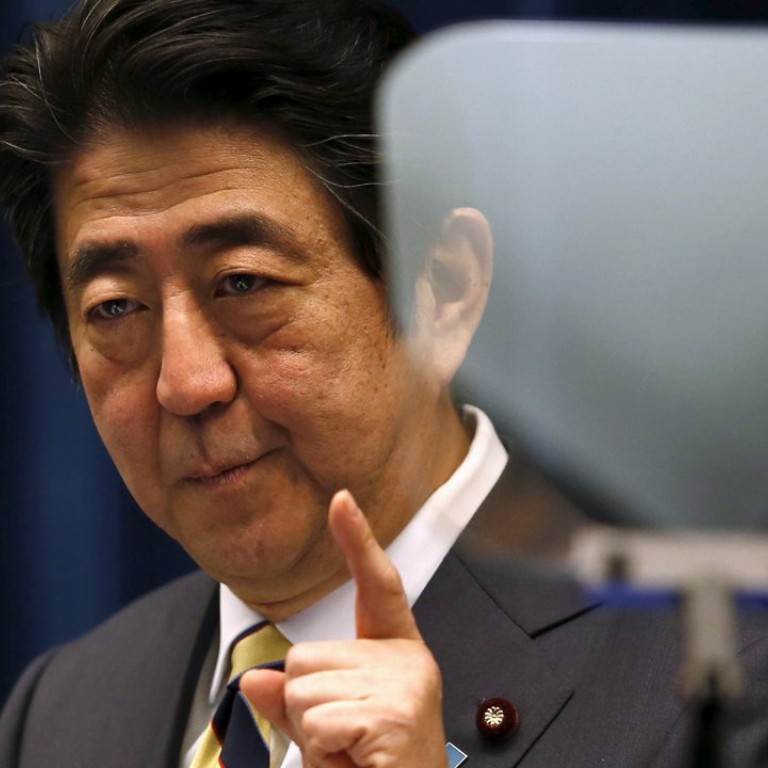
Dr Jim to Japan: stop fighting deflation
Economist says Abenomics has set Japan back ‘by three years and counting’
Just over three years ago, Shinzo Abe came to power in Japan, and a dead-in-the-water market was transformed into the world’s biggest macro-trade. As the new prime minister embarked on his radical experiment in monetary and fiscal stimulus, the Japanese currency plunged and equities skyrocketed.
The yen remains repressed today, the Nikkei 225 is still elevated, and exporters’ profits continue to enjoy the magic boost known as the benign currency effect. But what about ordinary Japanese, how enriched do they feel as Abenomics heads into its fourth year?
“I think the consumer confidence index says it all – in November 2012 it stood at 39. In November 2015 it was at 41.8,” says Jim Walker, founder and chief economist of the independent research house Asianomics Group. “The peak of confidence in this cycle came in May 2013, five months after Abe took office. If, as we expect, the stock market falls badly this year, then the rout will be complete.”
Walker, whose forecasting models are influenced by the Austrian school of economics, was set against the Abenomics from day one. So in soliciting his opinion on Abe’s progress to date, some scepticism is to be expected.
“What has Abenomics done for Japan? Set it back by three years and counting,” Walker says. “We are three years closer to a debt crisis, three years closer to understanding that extraordinary monetary and fiscal policies don’t work (I suppose that is a positive) and three years into one of the most incoherent and inconsistent economic policy experiments in history.”
I would reject completely the notion that deflation causes people to delay purchases of goods and services
To be sure, Abenomics has many critics. What sets Walker apart is his iconoclastic view that Japan was not really all that broken in the first place.
The ultimate goal of Abenomics is to defeat deflation, the country’s supposed curse of the past two decades. Walker’s advice: get over it. In an ageing society with a shrinking worker pool, productivity-driven deflation can underwrite high living standards, for example by improving the real purchasing power of senior citizens living off their savings.
The same advice applies to the rest of the developed world. “Deflation is the natural state of affairs,” Walker says, using as an example the falling cost of computers over time as production becomes more efficient.
Most mainstream economists would agree that the 20th century’s bubbly inflation and heated economic growth was an outlier, and is unsustainable. But OECD policymakers are desperate to keep some upward tilt to consumer price inflation, with central bank targets on CPI typically set at 2 per cent. The consensus belief is that deflation saps demand, as consumers postpone purchases to get cheaper deals in the future. Meanwhile, companies will not borrow to expand operations, fearing ever-diminishing returns on investment. If there were an emoji for deflation, it would be a downward spiral.
To Walker, this is senseless. Simply open any basic economics textbook, and study the price elasticity of demand chart, which shows that demand rises for goods or services as prices fall (except for those that are inelastic). “I would reject completely the notion that deflation causes people to delay purchases of goods and services,” he says. “If that were the case we would need to rewrite all economic textbooks … even Keynesian ones.”
The story is different with assets, such as stocks or property, which tend to be sold rather than bought when they fall in price – at least until someone decides that they are underpriced. But “as for the notion that deflation stops purchases, I would really like to see some examples. When did that ever happen?” he asks.
Dr Jim, as Walker is known to clients, calculates that Japanese consumption has risen 27 per cent in real terms over the past 25 years, despite persistent price deflation over this period and even as the population grew only 2.4 per cent.
Meanwhile, fighting deflation often creates high debt levels which, according to the Asianomics Group, is the real threat to the economies of Japan and other developed countries.
In this view, deflation’s cure is worse than the disease. It is hard to see this with global asset prices jacked up by aggressive stimulus, but eventually there will be a brutal reckoning. When? The process will begin this year, Walker warns.
Cathy Holcombe is a Hong Kong-based financial writer

